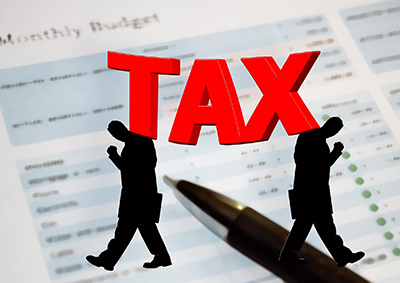The tax system in Andorra is the perfect example of legality and transparency, but with low taxes capable of competing with any country in the world that is not considered a tax haven. Before embarking on a purchase or tax residence project in Andorra, it is advisable to know the essential elements about taxation and taxes. Let’s review the large parts of the Andorran tax system.
These are the taxes that currently make up the fiscal framework of Andorra, and make it comparable to the rest of the countries of the European Union and the OECD. In Andorra, taxes are collected through the Commons (Town Councils) and the Government. The commons are in charge of making effective the collection of taxes corresponding to:
- ‘’ Foc i Lloc ’’
- Real estate
- Tenant returns
- Carrying out commercial, business and professional activities
- Construction liens
As for the Government of Andorra, it is responsible for the following taxes:
- The Personal Income Tax (IRPF)
- Corporation Tax (IS)
- The Income Tax for Non-Tax Residents (IRNR)
- The General Indirect Tax (IGI)
In this post, we will focus on the taxes collected by the Government

Taxes, tax system Andorra vs Spain
Income Tax for Individuals
Personal income tax is one of the main taxes in Andorra. It is calculated on the income that every natural person is likely to generate, and particularly:
- The income of a profession or an activity corresponding to the sum of the remuneration, wages and bonuses;
- Income related to the exploitation of real estate, mainly rental properties;
- The income coming from certain activities such as commercial, professional or still administrative activities;
- Income derived from movable assets and rights, as well as bank interests;
Not included in the personal income tax: free acquisitions (inheritances, donations) and income from the transfer of real estate. According to Andorran taxation, this tax is limited to 10%. Likewise, it is null below the accumulation of 24,000.00 euros of income per year, and its applied index is 5% for the income between 24,000.00 euros and 40,000.00 euros. From 40,000.00 euros the applicable tax rate is 10%
The base on which personal income tax is applied can be reduced by applying bonuses or deductions, such as contributions to pension plans, payment of the habitual residence or compensatory pensions, among others. Finally, the people subject to personal income tax are the following:
- Those who reside in Andorra for more than 183 days during the calendar year;
- People exercising an economic activity in the Principality, or who have economic interests that allow them to make direct and indirect benefits
The deadline for filing and paying personal income tax has a deadline from April 1 to September 30 of the following year on which it has to be settled.
Corporation Tax
It is a tax that is applied on the benefits obtained by a company within its tax period, although this cannot exceed 12 months. Its maximum tax rate is 10%. The settlement of this tax is carried out during the month of September with a payment on account and during the month of July of the following year the total regularization is carried out.
There are two reductions of special interest, for new businesses. The first is that the first year of application of the tax, the taxpayers enjoy a 50% reduction in the settlement fee, with which the effective rate would remain at 5%
The second, on the other hand, benefits SMEs and micro-enterprises. And it is that for the taxpayers of this tax who are constituted as new entrepreneurs of a new business or professional activity and who obtain profits of less than 100,000.00 euros, the applicable tax rate during the first 3 years of activity is:
- 5% for the part of the tax base between 0 and 50,000.00 euros
- 10% for the remaining tax base
In the case of dividends or profit shares, they are exempt from tax for residents of Andorra.
The Income Tax for Non-Tax Residents in Andorra
It is applied to those individuals or companies that obtain income in the Principality of Andorra, but do not have residence in the country. All persons or companies that, while not residents in Andorra, obtain income in the country must submit a statement-liquidation individually and also appoint a tax representative if the income is obtained from a private individual or from a permanent establishment.
Main income subject to IRNR:
- If the services are provided within Andorra: (repairs, maintenance, other professional work on movable or immovable property)
- If the services are consumed within Andorra: (advice, studies, projects, technical assistance, conferences, shows)
- Others: reinsurance operations, rental of real estate owned by non-residents
The amount of tax to pay is 10% of the income consigned on the invoice. A rate of 5% is applied if the income is obtained as royalties, 1.5% if it is reinsurance income. In the case of property rental, a reduction of 20% is applied on the income obtained.
Income that does not pay taxes: Dividends, interests and other income from movable capital, international sale of merchandise.
The Indirect General Tax
The General Indirect Tax is the equivalent of VAT, it is a tax that is levied on the exchange of goods and services carried out in the principality, including imports. In Andorra the general tax rate is 4.5%, unlike Spain, which establishes a rate of 21%. Within this tax we find, in addition to the general, other 4 tax rates according to which it is applied:
- Super-reduced rate: 0% tax rate, that is, free of IGI, on activities related to the health and educational field, as well as the rental of homes or gold destined for investment
- Reduced rate: in this case the tax value is 1%, which is applied to food (without taking into account alcoholic beverages)
- Special rate: 2.5% is applied to the transport of people, to the provision of services offered by non-public non-profit organizations and to collectibles, art or antiques
- Increased tax: this tranche is applied to financial and banking services, applying 9.5% IGI on operations.
Taxpayers must submit the declaration periodically based on the annual turnover for the set of activities carried out in the previous year:
- <to 250,000.00 euros, semi-annual presentation: July and January
- <to 3,600,000.00 euros, quarterly presentation: April, July, October and January
- In the other cases, monthly presentation
Advantages for individuals
Andorran taxation has advantages for individuals who have decided to settle in the country, among which:
- Reduced tax rates in personal income tax, compared to countries in the European environment.
- Indirect consumption taxes lower than those of neighboring European countries.
- The non-taxation of bank interest up to 3,000.00 euros
- The absence of Wealth Tax
- The non-existence of inheritance taxes
We invite you to ask us your questions through our contact section or if you prefer you can browse our website to better understand all the services we can offer you.



